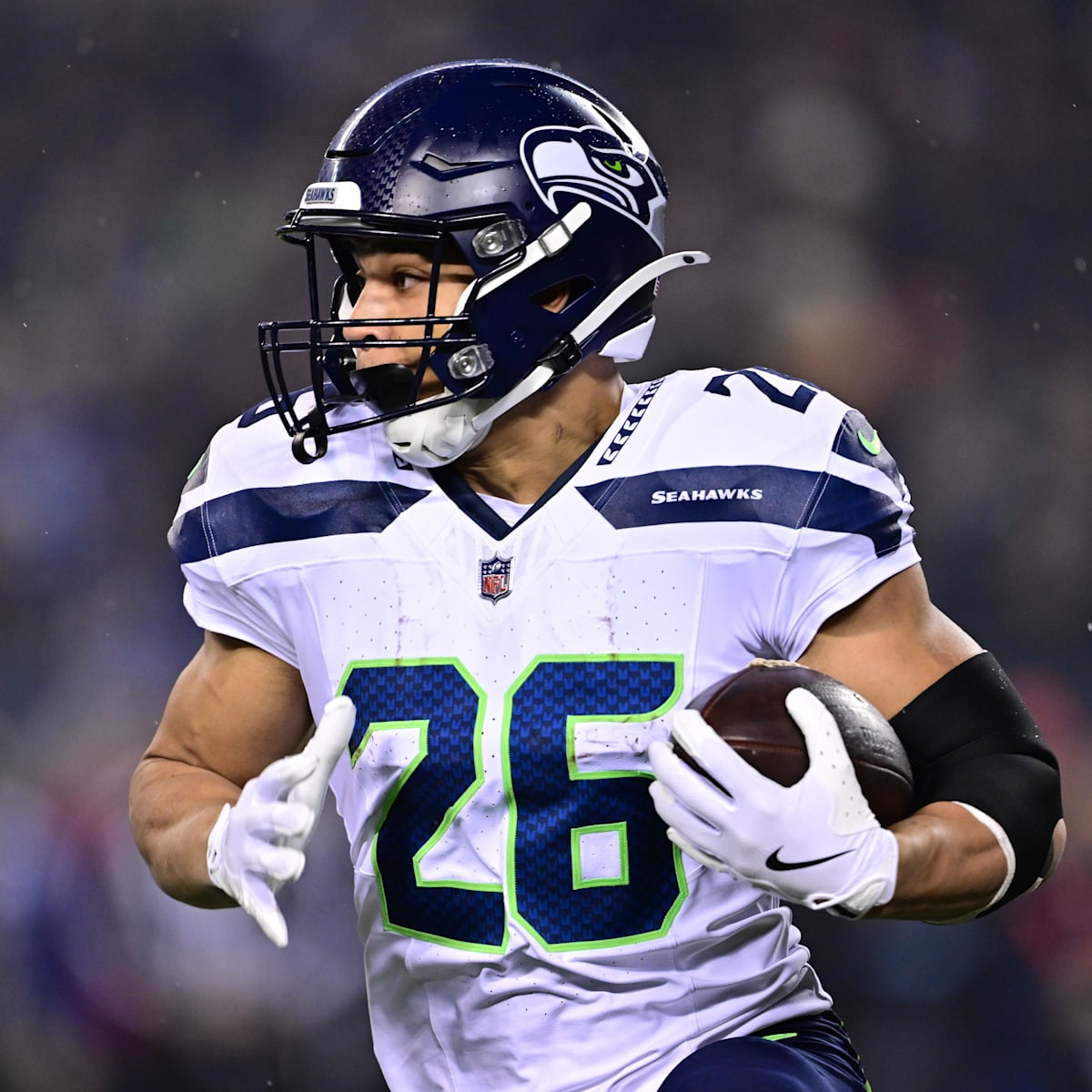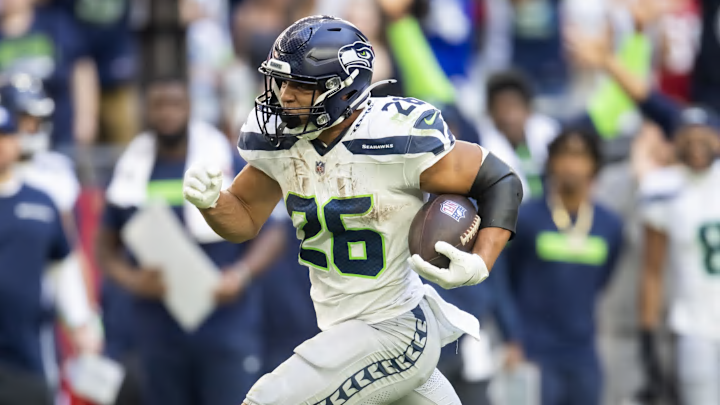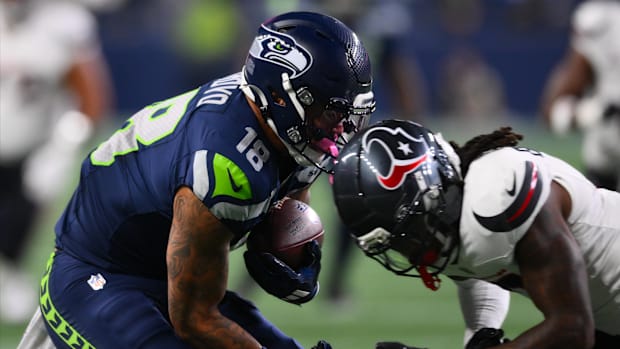
SEATTLE — Zach Charbonnet has heard the noise all week. Every radio segment, every fan forum, every podcast dissecting the Seattle Seahawks’ sputtering run game seemed to circle back to the same point: Why was he still getting so many carries?
But under the bright lights of Monday Night Football, Charbonnet didn’t answer with words. He answered with his pads.
Right off the bat, Seattle’s bruising second-year running back delivered a statement — one that silenced his critics, at least for the night — as the Seahawks seized early control of their primetime showdown with the Houston Texans at Lumen Field. His first-quarter touchdown run may have gone for just a single yard, but it carried the weight of a season’s worth of scrutiny.
And, fittingly, it came on a drive that felt fueled by frustration.
The crowd of more than 68,000 — the always-raucous “12s” — were already on edge after what appeared to be a missed opportunity moments earlier. On Houston’s opening possession, linebacker Uchenna Nwosu burst through the line and flattened Texans quarterback C.J. Stroud in the end zone for what looked like a safety. The crowd roared. The Seahawks players threw their hands up in triumph. But the officials ruled Stroud’s forward progress was stopped at the 1-yard line, wiping away what would’ve been a 2-0 Seattle lead.
Head coach Mike Macdonald, visibly incredulous, pleaded for a chance to challenge the call. The refs wouldn’t allow it.
That’s when the mood in Lumen Field shifted. The fans — and the team — wanted blood.
After the Texans’ ensuing punt, quarterback Sam Darnold took over near midfield. The Seahawks’ offense, which had been criticized nearly as much as Charbonnet in recent weeks, looked suddenly sharp and assertive. On the second play of the drive, Darnold dropped back and fired a dart down the seam to rookie tight end Elijah Arroyo — yes, the backup tight end who had only seven catches all season entering the game. Arroyo hauled it in for a 27-yard gain, dragging two defenders to Houston’s 12-yard line and igniting the crowd once again.
Two plays later, Darnold found Arroyo again on a short out route, and the rookie muscled his way to the 1-yard line. His ninth catch of the year set up a first-and-goal — and set the stage for Charbonnet’s redemption moment.
Everyone in the building knew what was coming next.

Lining up in a heavy formation, Charbonnet took the handoff, lowered his shoulder, and followed left guard Damien Lewis into a wall of defenders. He churned his legs, driving forward. Then came the shove — a surge of bodies behind him, including Arroyo, pushing the pile across the goal line. Touchdown, Seahawks. The stadium erupted.
As Charbonnet emerged from the scrum, slapping hands with his linemen, a hint of vindication crossed his face. He didn’t spike the ball or taunt the crowd. He just jogged back to the sideline, helmet still on, and exhaled. For a player who entered the game averaging a league-worst 2.6 yards per carry among running backs with at least 30 attempts, it wasn’t about numbers. It was about proving he could still deliver when the moment demanded it.
“He’s a tough runner. Always has been,” Macdonald said later. “That’s a tone-setter drive — physical football, everybody doing their job. That’s who we want to be.”
Seattle built on that momentum. On the next offensive series, Darnold — showing improved command of the offense after a few rocky weeks — connected with Jaxon Smith-Njigba for an 11-yard touchdown, giving the Seahawks a 14-0 lead. The rookie receiver, who leads the NFL in catches and receiving yards through seven games, celebrated with a calm fist pump as his teammates mobbed him in the corner of the end zone.
For Seattle, it was the start they’d been waiting for: fast, decisive, and confident.
Charbonnet’s contributions may not light up the stat sheet, but the significance of that first touchdown run went deeper than any box score. It came after a week in which fans and analysts openly wondered if Kenneth Walker III should reclaim a larger share of the workload. The Seahawks’ coaching staff, though, remained firm in their belief that Charbonnet’s downhill style brings something vital — grit, tempo, and attitude — to an offense that too often gets bogged down in finesse.
“Zach runs angry,” Arroyo said postgame. “When he hits the hole, you feel it. That’s the energy we feed off.”
By halftime, the Seahawks held a 17-3 lead, and Charbonnet had already logged more yards after contact than in the previous two games combined. Each carry seemed to chip away not just at the Texans’ defensive front, but at the narrative that had shadowed him since training camp.
“He doesn’t care what people say,” Darnold added. “He just works. He’s one of those guys who keeps his head down and does what’s asked of him. And when you give him a yard, he’ll take two.”
It was, in the grand scheme, just one early touchdown in a long NFL season. But for Charbonnet and the Seahawks, it meant more. It was proof that, even in the face of mounting criticism, this team still knows how to punch back — hard.
And on this night in Seattle, one tough yard was all it took to quiet the noise.






